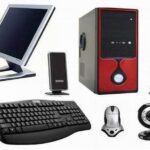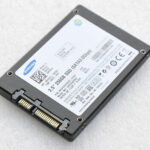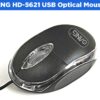Top Computer Maintenance Tasks You Should Perform Regularly
Regular computer maintenance is vital for ensuring optimal performance, reliability, and longevity of your system. Neglecting maintenance tasks can lead to slow performance, system crashes, and potential data loss. In this article, we highlight the top computer maintenance tasks that you should perform regularly to keep your computer running smoothly.
Disk Cleanup and Defragmentation:
Over time, your computer accumulates temporary files, unnecessary system files, and other digital clutter that can take up valuable disk space and slow down your system. Use the built-in disk cleanup tool to remove these unnecessary files. Additionally, perform disk defragmentation to optimize the arrangement of files on your hard drive, improving data access speed and overall system performance.
Software Updates and Patches:
Regularly update your operating system, software applications, and drivers to ensure you have the latest features, bug fixes, and security patches. Enable automatic updates whenever possible to keep your system up to date without manual intervention. These updates often address vulnerabilities and improve stability and compatibility.
Malware and Virus Scans:
Malware and viruses pose significant threats to your computer’s security and performance. Install reliable antivirus software and perform regular scans to detect and remove any malicious programs. Keep the antivirus software up to date to protect against the latest threats. Exercise caution when downloading files or clicking on links from unknown or suspicious sources.
Hardware Cleaning:
Dust and debris can accumulate inside your computer, clogging air vents, and causing overheating issues. Regularly clean the exterior of your computer using a soft cloth and use compressed air to clean the vents, keyboard, and other hardware components. Ensure that your computer is powered off and disconnected from any power source before performing any cleaning tasks.
Backup Your Data:
Regular data backups are crucial to protect against potential data loss due to hardware failure, accidental deletion, or malware attacks. Use external storage devices, cloud-based backup services, or a combination of both to create backups of your important files and documents. Set up automatic backups to ensure your data is consistently protected.
Uninstall Unused Programs:
Over time, you may accumulate a collection of programs and applications that you no longer use. These unused programs take up valuable disk space and can slow down your system. Review the list of installed programs regularly and uninstall any unnecessary or unused software to free up disk space and streamline your system’s performance.
Check for Hardware Issues:
Perform routine checks on your computer’s hardware components. Inspect cables, connectors, and peripherals for signs of damage or wear. If you notice any issues, such as loose connections or strange noises coming from your computer, consult a professional technician for further evaluation and repair.
Disk Cleanup and Defragmentation:
Regularly perform disk cleanup to remove unnecessary files and free up disk space. Use the built-in Disk Cleanup utility on Windows or third-party software to clean up temporary files, system caches, and other junk files. Additionally, consider defragmenting your hard drive to optimize file organization and improve system performance.
Update Operating System and Software:
Keep your operating system and software up to date by installing the latest updates and patches. Updates often include security fixes, bug fixes, and performance enhancements. Enable automatic updates whenever possible or manually check for updates regularly to ensure your system has the latest protections.
Scan for Malware and Viruses:
Run regular scans with antivirus and anti-malware software to detect and remove any malicious programs or files. Schedule full system scans or perform manual scans on a regular basis. Make sure your antivirus software is up to date with the latest virus definitions to effectively protect your system.
Clean Dust and Dirt:
Dust and dirt can accumulate inside your computer, particularly in fans, vents, and heat sinks, leading to overheating and performance issues. Regularly clean the exterior and interior of your computer using compressed air or a soft brush. Be sure to shut down your computer and unplug it before cleaning.
Check for Hardware Issues:
Perform periodic hardware checks to identify any potential issues. Test your computer’s memory (RAM) using built-in diagnostic tools or third-party software. Check your hard drive’s health and scan for errors using disk diagnostic tools. Monitor the temperature of your CPU and GPU to ensure they are running within safe limits.
Manage Startup Programs:
Review and manage the programs that start automatically when you boot up your computer. Some applications may unnecessarily slow down your startup time or consume system resources. Disable or remove any unnecessary startup programs using the Task Manager or System Configuration (msconfig) tool.
Backup Important Data:
Regularly back up your important files and data to an external storage device, cloud storage, or both. Use a reliable backup solution to ensure you have a copy of your data in case of hardware failure, data corruption, or accidental deletion. Consider scheduling automatic backups to make the process seamless.
Organize and Optimize Storage:
Keep your files organized and optimize your storage by regularly sorting and removing unnecessary files. Delete duplicate files, old documents, and unused applications to free up disk space. Use folders and file naming conventions to maintain a tidy and easily navigable file system.
Check for System Errors and Performance Issues:
Monitor your computer for system errors, crashes, and performance issues. Keep an eye on the Event Viewer or other system monitoring tools for any warning or error messages. Address any recurring issues promptly to prevent further problems.
Clean and Maintain Peripherals:
Don’t forget to clean and maintain your computer peripherals, such as the keyboard, mouse, and monitor. Use appropriate cleaning methods to remove dust, dirt, and fingerprints from these devices. This helps maintain their functionality and extends their lifespan.
By performing these computer maintenance tasks regularly, you can optimize system performance, improve reliability, and extend the lifespan of your computer. It’s a proactive approach to keep your system in good shape and prevent potential issues down the line.
 Previous Post
Previous Post Next Post
Next Post



